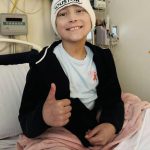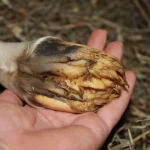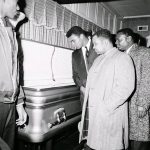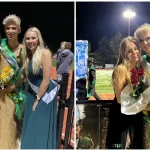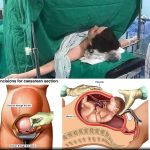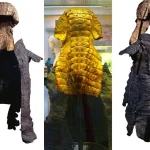The Echo of a Smile

Before the accident, Ethan’s world was one of broad smiles and easy laughter. He was a carpenter, a man whose hands shaped wood into things of beauty, and his face was an open book, quick to show joy, concentration, or mischief. Then came the fire. It took his workshop, his craft, and the face he had known his entire life.

In its place was a landscape of pain. He lost not just skin and bone, but the very architecture of his identity. For years, he lived in a self-imposed exile, a world of shadows and drawn curtains. He hid behind masks, his voice a muffled sound, his food taken through a straw. Every mirror was a torment, reflecting a stranger distorted by tragedy. Every glance from people on the street, a mixture of pity and horror, was a fresh reminder of all he had lost. His will to live, once as strong as the oak he used to work with, had been eroded to a fragile whisper.

But then, in the depths of his despair, a different kind of story was unfolding. Hundreds of miles away, a family was facing their own unimaginable grief. A young man named Leo, full of life and with a smile that could light up any room, had been taken from them in a sudden, tragic accident. As they navigated their own darkness, his parents made a choice of profound love and courage: they chose to donate his organs, to give the ultimate gift so that others could live again. And among those gifts was his face.

The call came to Ethan like a dream he was afraid to believe. Hope, an emotion he had long since buried, began to stir. The surgery was a marathon of human ingenuity and reverence. For over twenty-four hours, a team of surgeons worked with painstaking precision. They weren’t just stitching together skin, nerves, and muscle; they were weaving a tapestry of a second chance, mending a fractured spirit, and honoring the legacy of a life cut short. They were stitching together hope and dignity.

When the bandages finally came off weeks later, Ethan’s hands trembled as a nurse held up a mirror. He braced himself for the familiar shock, the wave of revulsion. But it didn’t come. He saw a face that was not his old one, nor was it a stranger’s. It was a landscape of possibility. He saw eyes that could once again meet the world, a mouth that might one day form a smile. Tears filled his eyes and streamed down his new cheeks—the first real emotion his face had been able to express in years. He saw life returning.

A year later, he met Leo’s family. The meeting was held in a quiet, sunlit room, filled with a palpable mix of apprehension and grace. Leo’s mother, a woman with kind, weary eyes, walked slowly toward him. She stopped, her breath catching in her throat. She looked at Ethan’s face, and for a moment, she saw an echo of her beloved son—in the curve of his jaw, the shape of his mouth.
They cried together, a shared grief and a shared gratitude that transcended words. With a trembling hand, she reached out and gently touched his cheek.

“Part of him still lives,” she said softly, her voice thick with tears. “Through you.”
In that moment, the sterile miracle of the operating room met the sacred warmth of the human soul. Ethan realized the face he now wore was more than just a medical marvel; it was a testament. It was a legacy of a young man he’d never met and the story of a family who, in their darkest hour, chose to give a stranger the light.
In the end, what saves us isn’t medicine alone. It’s the kindness of hearts that choose to give even in loss, the incredible grace of a human spirit that allows a part of its own to live on in someone else. Ethan would carry that kindness with him for the rest of his life, in every word he spoke, every meal he tasted, and every smile he shared with the world.


